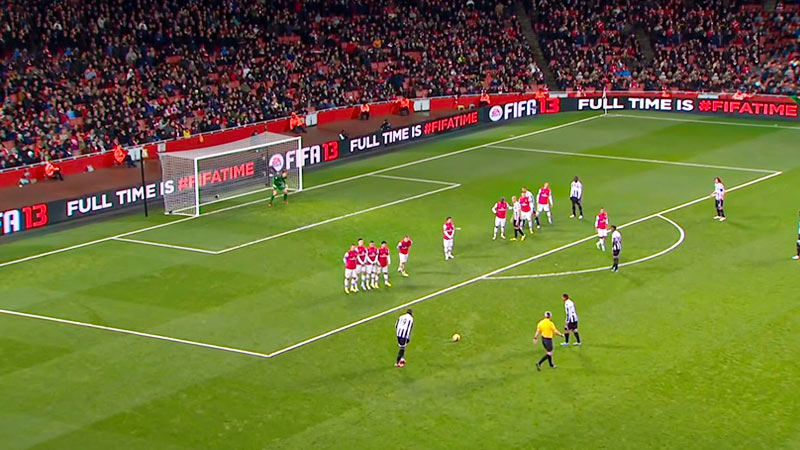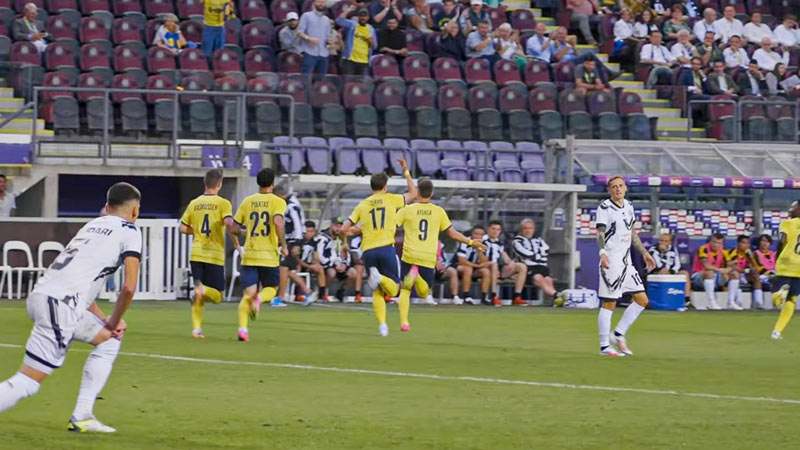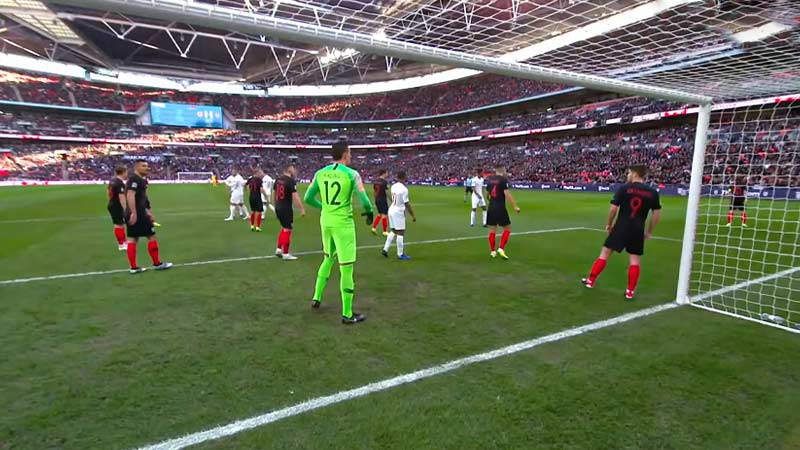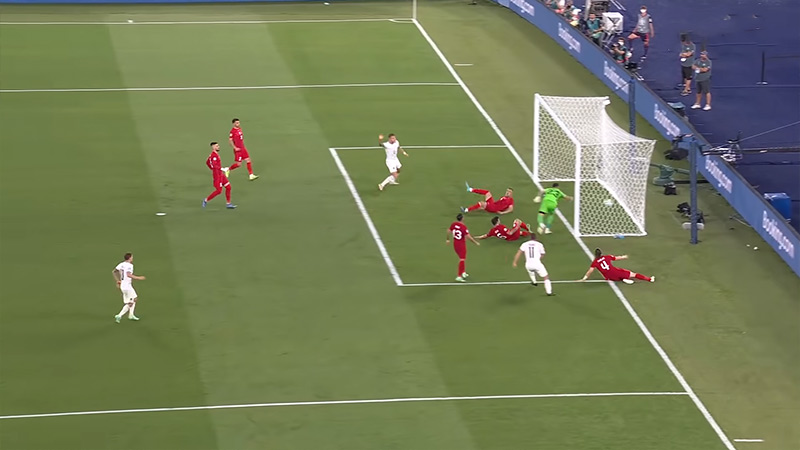The soccer season in Europe is a meticulously structured and eagerly anticipated sporting spectacle that unfolds throughout the year.
Europe’s passion for football is unrivaled, and the season is the epicenter of this fervor. It revolves around domestic leagues like the English Premier League, La Liga, Serie A, Bundesliga, and Ligue, typically spanning from late summer to spring.
These leagues offer an enthralling blend of skill, strategy, and competition. Moreover, European clubs engage in esteemed international competitions, such as the UEFA Champions League and UEFA Europa League.
The season also features domestic cup competitions and international tournaments, like the UEFA European Championship and the FIFA World Cup, adding diverse layers of excitement.
In the midst of this action, a mid-season break provides players and fans with a brief respite. Understanding the intricate schedule is essential for fans, players, and stakeholders, as it marks the heartbeat of European football.
When Is Soccer Season in Europe? -European Soccer Season
Soccer, or football as it is known in most parts of the world, is a highly popular sport in Europe.
The soccer season in Europe is structured differently from many other regions, and it typically follows a well-defined schedule.
To understand when the soccer season occurs in Europe, it’s essential to know about the various leagues, competitions, and their respective calendars.
Domestic Leagues

The soccer season in Europe primarily revolves around domestic leagues. Each European country has its own league system, with the top division being the most prestigious and competitive.
These leagues typically run from late summer to spring, with slight variations depending on the country.
The most prominent leagues in Europe include:
- English Premier League (England): Usually starts in August and ends in May.
- La Liga (Spain): Typically runs from August to May.
- Serie A (Italy): Runs from August to May.
- Bundesliga (Germany): Starts in August and ends in May.
- Ligue 1 (France): Runs from August to May.
International Competitions
In addition to domestic leagues, European clubs also compete in various international competitions that have their own schedules:
- UEFA Champions League: This prestigious club competition typically starts in September and culminates with the final in late May or early June.
- UEFA Europa League: Similar to the Champions League, it runs concurrently with the domestic leagues, starting in September and concluding in May or June.
- Domestic Cup Competitions: Many European countries have their own domestic cup competitions, such as the FA Cup in England or the DFB-Pokal in Germany. These tournaments usually run parallel to the league season.
International Tournaments
National teams in Europe participate in international tournaments, such as the UEFA European Championship (Euros) and the FIFA World Cup.
These tournaments occur every four years and take place during the summer. The UEFA European Championship typically happens in June and July, while the FIFA World Cup takes place in June and July of the respective year.
Mid-season Break
Many European leagues have a winter break that varies in duration from country to country. This break typically occurs in December and January.
It allows players and teams to rest and recuperate before resuming the second half of the domestic league season.
Does Europe Play Soccer in the Winter?

Yes, European countries often play soccer during the winter months, but the extent to which the sport is played in the winter can vary depending on the country and the specific league.
Here are some key points to consider:
Winter Breaks
Many European leagues, particularly in colder regions, implement a winter break. This break typically occurs in December and January, allowing players and teams to rest and recharge before resuming the second half of the domestic league season.
The duration of the winter break can vary from country to country, with some leagues taking a few weeks off, while others may have a longer break.
Matches in Winter
While there is a winter break, professional soccer matches still take place during the winter months.
However, these matches can be affected by adverse weather conditions, such as snow and freezing temperatures. In some cases, matches may be postponed or rescheduled due to extreme weather.
Indoor Facilities
Some clubs have access to indoor training facilities or heated pitches, which can mitigate the impact of winter weather. This allows for consistent training and, to some extent, reduces weather-related disruptions.
Cup Competitions
Domestic cup competitions, which run parallel to the league season, also continue during the winter. These knockout tournaments add an extra layer of competition and excitement to the soccer calendar.
International Competitions
European clubs participating in international competitions, such as the UEFA Champions League and UEFA Europa League, have matches scheduled during the winter months as well.
These competitions span the entire season and include matches from the group stages to the knockout rounds.
Is Soccer Played in the Summer in Europe?

Yes, soccer is played in the summer in Europe. The sport, known as football in most European countries, is a year-round passion for millions of people on the continent.
While the primary football season typically runs from late summer to early spring, there are several soccer competitions and events that take place during the summer months.
One of the most prominent summer soccer events in Europe is the UEFA European Championship, commonly referred to as the Euro.
This tournament brings together national teams from across the continent to compete for the prestigious title of European champions.
The UEFA Euro is held every four years and usually takes place in June and July. It features a month-long festival of football, with matches played in various host cities in the participating countries.
The tournament’s timing during the summer allows fans to enjoy the games in pleasant weather, creating a festive atmosphere across the host nations.
Additionally, domestic club competitions also have pre-season matches and training camps during the summer.
These preparations are essential for clubs to fine-tune their squads and tactics before the start of the regular season.
Friendly matches and international club competitions, such as the UEFA Champions League and UEFA Europa League qualifiers, often take place in the summer as well.
Moreover, many European countries host their own summer football tournaments and leagues, catering to both amateur and professional players.
These events offer opportunities for players of all ages to continue playing the sport during the warmer months.
FAQS
When does the soccer season start in Europe?
The soccer season in Europe typically starts in late summer, with variations depending on the specific league or country.
How long is a soccer season in Europe?
A soccer season in Europe generally spans from late summer to spring, typically lasting around 9 to 10 months.
How long is the soccer season in Europe?
The soccer season in Europe generally extends for approximately 9 to 10 months, commencing in late summer and concluding in spring.
What is the soccer season in Europe?
The soccer season in Europe refers to the annual schedule of domestic leagues, international competitions, and tournaments involving European football clubs and national teams, typically running from late summer to spring.
When does the soccer season in Europe come to an end?
The soccer season in Europe generally concludes in the spring, typically in May, but this can vary depending on the league.
Conclusion
The soccer season in Europe is a carefully orchestrated and year-round spectacle that captivates millions of fans worldwide.
From the grandeur of the domestic leagues like the English Premier League and La Liga to the intensity of international competitions such as the UEFA Champions League, the European football calendar offers a captivating journey.
The season begins in late summer, provides intermittent breaks for recovery, and reaches its climax in spring.
Alongside these leagues, domestic cup competitions and prestigious international tournaments add further excitement to the schedule.
Understanding this dynamic timeline is essential for fans, players, and stakeholders, as it embodies the very essence of European football’s enduring passion and unwavering tradition.







